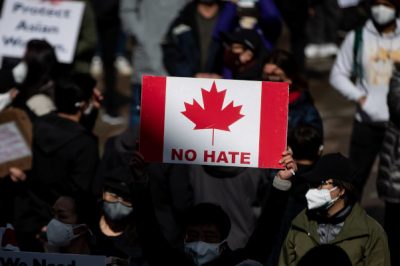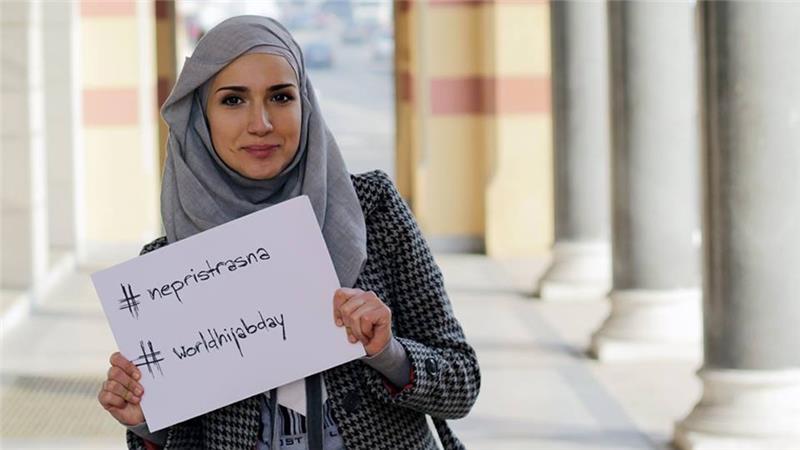Being a Muslim woman in the West is such a strange, dangerous, and amazing thing.
On one hand, we have so many freedoms and opportunities to spread out in our spirituality and practice our faith.
But on the other hand, we feel fettered by societal norms that contradict our Islam, and we suffer from a kind of cultural backlash when we do not conform.
On one hand, people of the West celebrate difference and freedom of faith.
But on the other hand, people are being swayed more and more by anti-Muslim rhetoric.
Being a Muslim woman in the West-and specifically a convert– is a trail blazing and rebellious balancing act that comes with many pressures and questions.
The question outsiders ask
The question many non-Muslims wonder is can the convert Muslimah’s faith be just an inner expression and not so public? The answer is that it, at least eventually, will be both.
When faith enters the heart, it manifests itself both inwardly and outwardly.
And so the new Muslimah’s manners improve. We spend less time with people or in places that do not benefit us.
We have a higher regard for our neighbors and elders.
And we dress more modestly. Here is where many non-Muslims have a hard time- modesty or hijab.
The hijab makes some Westerners uncomfortable for a number of reasons.
Either they don’t understand it or they feel the need to dictate what women should wear.
But who said freedom of religion meant you have to understand or agree with the religion in order to allow it? And while the Western world claims it is a stellar example of upholding women’s rights, why are Muslim women being excluded?
Shouldn’t we also have the right to choose what is best for ourselves? And if that means seeking nearness to God and wearing hijab, what is it anyone else’s business?
If we truly have freedom of religion in the West, if we are truly for women’s rights, we Muslim women shouldn’t have to hide our faith identity.
The question raised Muslims ask
Some raised Muslims wonder why new Muslimahs don’t practice their culture from “back home”.
Many people have a hard time unpacking cultural from religious.
Culture is the social practices of a group that change over time and from place to place while religion is the service and worship of God, the ever-lasting.
Nevertheless, some assume that everything they have found in their culture “back home” is Islam itself.
And this is where the confusion comes in. Some raised Muslims insist that new Muslims should sweep up everything including cultural practices, even ones that contradict Islam, into their learning of the religion.
This pressure to become a part of another culture is especially hard on Muslimah converts who more often than not will marry raised Muslims from an Eastern culture.
These sisters will likely be pressured to adopt the culture of the family she married into.
However, as converts we have examined our own previous faith and our own culture.
And as we learn Islam, we are sitting out the bad and replacing it with good.
What we are finding is that not everything from Western culture is haram.
And not everything from Eastern culture is halal.
The Western Muslimah convert by and large won’t give up our cultural identity when coming to Islam.
The question we ask ourselves as Muslim converts
The question on many a Western Muslimah’s mind is to make hijrah or not to make hijrah.
This is a tricky question especially for converts.
Should we continue to make space for ourselves and our religious traditions in the West even when we are up against so much pressure to conform? Or should we flee to the lands of the Muslims where Islam is established, even when the cultural practices can be hard on women?
Convert Muslimahs wonder which is the better. Do we suffer tension because of our faith or because of our anatomy? Which place do we owe more to? Which place will we feel a sense of belonging?
In my personal experience, I often feel like a fish out of water no matter where I go, having one foot in my homeland with my culture and one foot in the Muslim lands with my faith.
I practice the halal traditions of home and family, while incorporating the strangely familiar of Islam. But I am viewed as strange in both contexts.
The Prophet (PBUH) said:
“Islam initiated as something strange, and it will revert to being strange. So, glad tidings to the stranger!” (Muslim)
Still, even though people make us feel like we are caught between two worlds, we know that there is only one world, and Islam is meant for all peoples, places, and times.
Whether or not we choose to stay or leave, the reality remains that convert Muslimahs are having a hard time in the Western context.
However, we have an opportunity to make space for our faith on this side of the world.
We have the opportunity to blaze the trail for the next generation of uniquely American, Canadian, British or Australian Muslim women, to make their experience less difficult and more accepted, to make it just another norm to be Muslim and female and Western.
This article is from our archive, originally published on an earlier date and highlighted here for its importance.


